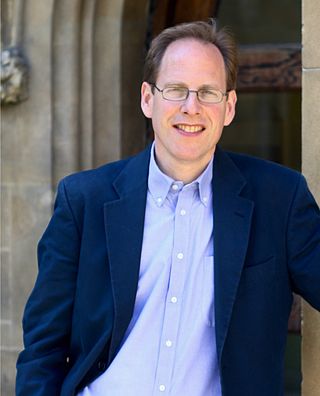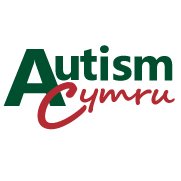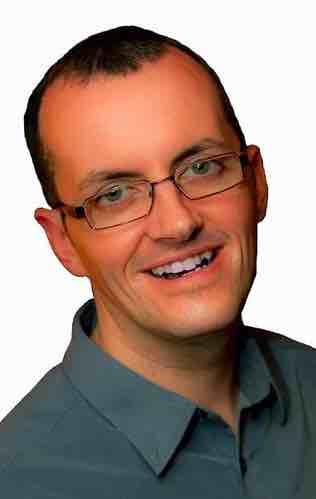Related Research Articles

Sir Simon Philip Baron-Cohen is a British clinical psychologist and professor of developmental psychopathology at the University of Cambridge. He is the director of the university's Autism Research Centre and a Fellow of Trinity College.

Neurodiversity is a framework for understanding human brain function that recognizes the diversity of human cognition as a biological fact. The neurodiversity paradigm argues that diversity in human cognition is normal and that some conditions classified as mental disorders are differences and disabilities that are not necessarily pathological.

The autism rights movement, also known as the autistic acceptance movement, is a social movement allied with disability rights that emphasizes a neurodiversity paradigm, viewing autism as a disability with variations in the human brain rather than as a disease to be cured. The movement advocates for several goals, including greater acceptance of autistic traits and behaviors; reforms of services - i.e. services that focus on improving quality of life and well-being instead of suppression and masking of autistic traits that are adaptive or not harmful or imitations of social behaviors of allistic (non-autistic) peers ; the creation of social networks and events that allow autistic people to socialize on their own terms; and the recognition of the autistic community as a minority group.

The National Autistic Society is a charity for autistic people and their families in the United Kingdom. Since 1962, the National Autistic Society has been providing support, guidance and advice, as well as campaigning for improved rights, services and opportunities to help create a society that works for autistic people.
The following outline is provided as an overview of and topical guide to autism:
The Autism Society of America (ASA) was founded in 1965 by Bernard Rimland together with Ruth C. Sullivan and a small group of other parents of children with autism. Its original name was the National Society for Autistic Children; the name was changed to emphasize that autistic children grow up. The ASA's stated goal is to increase public awareness about autism and the day-to-day issues faced by autistic people as well as their families and the professionals with whom they interact. Although the group has promoted the pseudoscientific belief that vaccines cause autism in the past, it now affirms that there is no link between vaccination and autism. In 2021, the ASA launched a new brand including a logo consisting of multicolor lines forming a fabric with a new slogan, "The Connection Is You".

Societal and cultural aspects of autism or sociology of autism come into play with recognition of autism, approaches to its support services and therapies, and how autism affects the definition of personhood. The autistic community is divided primarily into two camps; the autism rights movement and the pathology paradigm. The pathology paradigm advocates for supporting research into therapies, treatments, and/or a cure to help minimize or remove autistic traits, seeing treatment as vital to help individuals with autism, while the neurodiversity movement believes autism should be seen as a different way of being and advocates against a cure and interventions that focus on normalization, seeing it as trying to exterminate autistic people and their individuality. Both are controversial in autism communities and advocacy which has led to significant infighting between these two camps. While the dominant paradigm is the pathology paradigm and is followed largely by autism research and scientific communities, the neurodiversity movement is highly popular among most autistic people, within autism advocacy, autism rights organizations, and related neurodiversity approaches have been rapidly growing and applied in the autism research field in the last few years.
The Autistic Self Advocacy Network (ASAN) is an American 501(c)(3) nonprofit advocacy organization run by and for individuals on the autism spectrum. ASAN advocates for the inclusion of autistic people in decisions that affect them, including: legislation, depiction in the media, and disability services.

Autism Speaks Inc. is an American non-profit autism awareness organization and the largest autism research organization in the United States. It sponsors autism research and conducts awareness and outreach activities aimed at families, governments, and the public. It was founded in February 2005 by Bob Wright and his wife Suzanne, a year after their grandson Christian was diagnosed with autism. The same year as its founding, the organization merged with Autism Coalition for Research and Education. It then merged with the National Alliance for Autism Research in 2006 and Cure Autism Now in 2007.

World Autism Awareness Day is an internationally recognized day annually on 2 April, encouraging Member States of the United Nations to take measures to raise awareness about autistic individuals throughout the world. It was designated by the United Nations General Assembly resolution (A/RES/62/139), passed in council on 1 November 2007, and adopted on 18 December 2007. It was proposed by Moza bint Nasser Al-Missned, the United Nations Representative from Qatar, and supported by all member states.

The Autism Act 2009 is an Act of the Parliament of the United Kingdom. The Act makes provision about the needs of adults who have autistic spectrum disorders including autism and Asperger syndrome.

Ari Daniel Ne'eman is an American disability rights activist and researcher who co-founded the Autistic Self Advocacy Network in 2006. On December 16, 2009, President Barack Obama announced that Ne'eman would be appointed to the National Council on Disability. After an anonymous hold was lifted, Ne'eman was unanimously confirmed by the United States Senate to serve on the Council on June 22, 2010. He chaired the council's Policy & Program Evaluation Committee making him the first autistic person to serve on the council. In 2015, Ne'eman left the National Council on Disability at the end of his second term. He currently serves as a consultant to the American Civil Liberties Union. As of 2019, he also is a Ph.D. candidate in Health Policy at Harvard University.
Autism, formally called autism spectrum disorder (ASD) or autism spectrum condition (ASC), is a neurodevelopmental disorder marked by deficits in reciprocal social communication, and the presence of restricted and repetitive patterns of behavior. Other common signs include difficulties with social interaction, verbal and nonverbal communication, perseverative interests, stereotypic body movements (stimming), rigid routines, and hyper- or hyporeactivity to sensory input. Autism is clinically regarded as a spectrum disorder, meaning that it can manifest very differently in each person. For example, some are nonspeaking, while others have proficient spoken language. Because of this, there is wide variation in the support needs of people across the autism spectrum.
Autism spectrum disorders (ASDs) or autism spectrum conditions (ASCs) describe a range of conditions classified as neurodevelopmental disorders in the DSM-5, used by the American Psychiatric Association. As with many neurodivergent people and conditions, the popular image of autistic people and autism itself is often based on inaccurate media representations. Additionally, media about autism may promote pseudoscience such as vaccine denial or facilitated communication.
Autism-friendly means being aware of social engagement and environmental factors affecting people on the autism spectrum, with modifications to communication methods and physical space to better suit individual's unique and special needs.

Autism Cymru was Wales' national charity for autism with offices in Cardiff, Wrexham, and Aberystwyth. The charity was established in May 2001 through an initial 3-year grant provided by The Shirley Foundation. The founder chair of the Trustees was Dame Stephanie Shirley of the Shirley Foundation.
Diagnosis, treatment, and experiences of autism varies globally. Although the diagnosis of autism is rising in post-industrial nations, diagnosis rates are much lower in developing nations.

Kevin Healey is an autism activist. He also campaigns against bullying.
The history of autism spans over a century; autism has been subject to varying treatments, being pathologized or being viewed as a beneficial part of human neurodiversity. The understanding of autism has been shaped by cultural, scientific, and societal factors, and its perception and treatment change over time as scientific understanding of autism develops.

Lydia X. Z. Brown is an American autistic disability rights activist, writer, attorney, and public speaker who was honored by the White House in 2013. They are the chairperson of the American Bar Association Civil Rights & Social Justice Disability Rights Committee. They are also Policy Counsel for Privacy & Data at the Center for Democracy & Technology, and Director of Policy, Advocacy, & External Affairs at the Autistic Women & Nonbinary Network. In 2022, they unsuccessfully ran for the Maryland House of Delegates in District 7A, losing to state delegate Kathy Szeliga and delegate-elect Ryan Nawrocki.
References
- ↑ "Brief history of the Autistic Society". Trinidad and Tobago Newsday. 2 April 2015. Retrieved 22 November 2015.
- 1 2 Feinstein, Adam (2010). A History of Autism: Conversations with the Pioneers. Chichester: Wiley-Blackwell. ISBN 978-1-4443-5167-5.
- ↑ Fraser, Mark (2 April 2013). "Autistic Society laments 'silent epidemic'...calls for Govt funding". Sunday Express. Archived from the original on 23 November 2015. Retrieved 22 November 2015.
- ↑ "Observing autism awareness month". Trinidad and Tobago Guardian. 6 April 2011. Retrieved 22 November 2015.
- ↑ "Autism Awareness Day 2010". Government of the Republic of Trinidad and Tobago Ministry of Health. 2 April 2010. Retrieved 22 November 2015.